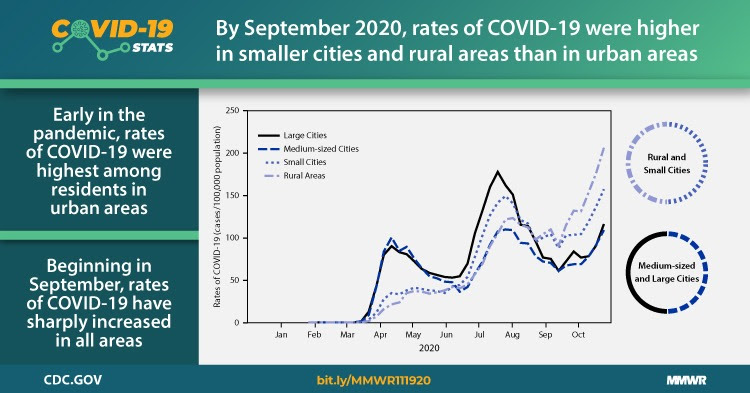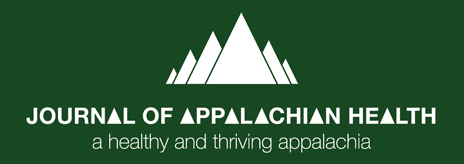- CMS: Medicare Program; Prospective Payment System and Consolidated Billing for Skilled Nursing Facilities; Updates to the Quality Reporting Program for Federal Fiscal Year 2026
- CMS: Medicare Program; FY 2026 Hospice Wage Index and Payment Rate Update and Hospice Quality Reporting Program Requirements
- Public Inspection: CMS: Medicare Program: Prospective Payment System and Consolidated Billing for Skilled Nursing Facilities; Updates to the Quality Reporting Program for Federal Fiscal Year 2026
- Public Inspection: CMS: Medicare Program: Fiscal Year 2026 Hospice Wage Index and Payment Rate Update and Hospice Quality Reporting Program Requirements
- CMS: Request for Information; Health Technology Ecosystem
- VA: Staff Sergeant Fox Suicide Prevention Grant Program Funding Opportunity
- State: 60-Day Notice of Proposed Information Collection: J-1 Visa Waiver Recommendation Application
- Public Inspection: CMS: Request for Information: Health Technology Ecosystem
- HHS: Request for Information (RFI): Ensuring Lawful Regulation and Unleashing Innovation To Make American Healthy Again
- VA: Solicitation of Nominations for the Appointment to the Advisory Committee on Tribal and Indian Affairs
- GAO Seeks New Members for Tribal and Indigenous Advisory Council
- VA: Staff Sergeant Fox Suicide Prevention Grant Program Funding Opportunity
- Telehealth Study Recruiting Veterans Now
- USDA Delivers Immediate Relief to Farmers, Ranchers and Rural Communities Impacted by Recent Disasters
- Submit Nominations for Partnership for Quality Measurement (PQM) Committees
CDC COVID-19 Stats: COVID-19 Incidence by Urban-Rural Classification
The CDC has established a new MMWR reporting feature, “COVID-19 Stats.” This edition of COVID-19 Stats highlights rural-urban disparities in COVID incidence rates.

For more information on COVID-19 incidence by Urban-Rural classification, click here.
Additionally, CDC Science Clips recently featured articles on rural health in conjunction with the observance of National Rural Health Day.
Program Updates on the HRSA Rural Residency Planning & Development (RRPD) Program
The HRSA Rural Residency Planning & Development (RRPD) Technical Assistance Center (RRPD-TAC) recently compiled a state by state summary on the 37 grant programs that are developing new rural residency programs across 26 states. Please see the program summaries by downloading here.
The RRPD program is a multi-year cross-bureau collaboration between HRSA’s Federal Office of Rural Health Policy and the Bureau of Health Workforce that provides start-up funding for the development of new, accredited, and sustainable rural residency programs in family medicine, internal medicine, and psychiatry. In FY19, HRSA awarded $20M to organizations across 21 states to support the planning and development costs of establishing sustainable residency program, while obtaining accreditation through the Accreditation Council of Graduate Medical Education (ACGME). More recently, HRSA awarded over $8M to 11 new grant recipients up to $750,000 per award in August 2020.
Awarded in FY18, the RRPD-TAC provides resources and tools to support RRPD grant recipients and other organizations interested in developing new graduate medical education programs in rural communities. To learn more about the RRPD-TAC and to sign up for resources, please visit www.ruralGME.org or contact info@ruralGME.org.
For questions related to the RRPD program, please contact Sheena Johnson (Program Coordinator) at sjohnson@hrsa.gov.
CMS: “Stay Protected” Publication Available December 1st

A new publication targeting our provider community, “Stay Protected – Get a Flu Shot” will be available for order on December 1. And best of all, there is no charge! In order to request your copies, simply set up an account on the CMS Product Ordering page here: https://productordering.cms.hhs.gov/pow/?id=pow_login; and once approved, you can order the publication by either searching by the title (above), or entering pub. no. 12115. General delivery time is approximately one week.
USDA Launches AskUSDA, Improves and Streamlines Customer Experience

The U.S. Department of Agriculture (USDA) announced the official launch of the AskUSDA Contact Center program. The AskUSDA Contact Center will serve as the “one front door” for phone, chat, and web inquires, transforming how the public interacts with USDA and providing an enhanced experience for the public.
Prior to the creation and implementation of AskUSDA, members of the public had to navigate dozens of phone numbers and had no chat function or online platform for self-service, creating frustrations and inefficiencies. AskUSDA was created to make USDA more responsive to the public by providing a single destination for phone, chat, and web inquiries. Whether it’s talking to a USDA representative via phone, chatting with a live agent on our website, or communicating with USDA via e-mail, the public will have streamlined access.
The launch of AskUSDA delivers a centralized contact center that offers customer service and consistent information for the public. With over 29 agencies and offices, USDA’s mission impacts every single person in the U.S. and hundreds of millions around the globe. AskUSDA assures that farmers, researchers, travelers, parents, and more have efficient access to the information and resources they need.
AskUSDA is set up to handle common questions across programs that service a variety of audiences. For example, customers who may have basic questions about USDA’s nutrition services can be assisted across phone, e-mail, and web chat by trained AskUSDA representatives, and customers who may have complicated questions about loan programs can be quickly connected to agency experts. AskUSDA also hosts over five thousand articles for a self-service option to help with more common questions such as food safety inquiries or pet-travel guidance.
Over the course of its pilot program, AskUSDA successfully assisted with over 93,000 citizen inquiries, and the AskUSDA website resulted in over 1.4 million knowledge article page views. USDA looks forward to continuing to implement this enhanced best in class contact center across the Department.
The public can contact AskUSDA by phone at (833) ONE-USDA with representatives available 9:00am-5:30pm EST weekdays. The website (https://ask.usda.gov/) is available 24/7 and includes live chat agents available 10:00am-6:00pm EST on weekdays. Inquiries can also be sent via email at any time to askusda@usda.gov.
Journal of Appalachian Health: Volume 2, Issue 4 Available NOW!

Commentary
Rural Community Toolbox to Help Battle Opioid Epidemic, Liz Carey
Advancing Cancer Prevention Practice Facilitation Work in Rural Primary Care During COVID-19, Dannell Boatman, Susan Eason, Mary E. Conn, Summer Miller, & Stephenie Kennedy-Rea
COVID-19 and Opioid Use in Appalachian Kentucky: Challenges and Silver Linings, Rachel Vickers-Smith, Hannah L.F. Cooper, & April M. Young
Research Articles
Improving Access to Treatment for Opioid Use Disorder in High-Need Areas: The Role of HRSA Health Centers, Michael Topmiller, Jennifer Rankin, Jessica L. McCann, Jene Grandmont, David Grolling, Mark Carrozza, Hank Hoang, Josh Bolton, & Alek Sripipatana
In Their Own Words: How Opioids Have Impacted the Lives of “Everyday” People Living in Appalachia , Patricia Nola Eugene Roberson, Gina Cortez, Laura H. Trull, & Katherine Allison Lenger
Qualitative Analysis of Maternal Barriers and Perceptions to Participation in a Federal Supplemental Nutrition Program in Rural Appalachian North Carolina , Sydeena E. Isaacs, Lenka H. Shriver, & Lauren Haldeman
Leveraging Electronic Health Records Data for Enhanced Colorectal Cancer Screening Efforts, Adam D. Baus, Lauren E. Wright, Stephenie Kennedy-Rea, Mary E. Conn, Susan Eason, Dannell Boatman, Cecil Pollard, Andrea Calkins, & Divya Gadde
Review & Special Articles
The Landscape of Connected Cancer Symptom Management in Rural America: A Narrative Review of Opportunities for Launching Connected Health Interventions , Ming-Yuan Chih, Anna McCowan, Sadie Whittaker, Melinda Krakow, David K. Ahern, Eliah Aronoff-Spencer, Bradford W. Hesse, Timothy W. Mullett, & Robin C. Vanderpool
Media Reviews & Reports
Review of: From the Front Lines of the Appalachian Addiction Crisis Healthcare Providers Discuss Opioids, Meth and Recovery , Carl G. Leukefeld
Notes from the Field
Rural Appalachia Battling the Intersection of Two Crises: COVID-19 and Substance Use Disorders, Margaret Miller, Rebekah Rollston, Kate E. Beatty, & Michael Melt
CMS Targeted COVID-19 Training for Frontline Nursing Home Staff
The Centers for Medicare & Medicaid Services (CMS) consulted with the Centers for Disease Control and Prevention to create training modules for basic infection control and prevention. The site also includes modules for management that address larger, institution-wide issues such as implementing telehealth, emergency preparedness, and vaccine delivery.
Updates to Medicare’s Online Compare Tool
Starting December 1, Medicare.gov will compile the eight online tools to compare providers, such as Hospital Compare, Nursing Home Compare, and Physician Compare, into one place called Care Compare. It provides the same information but with a new, streamlined design. The Centers for Medicare & Medicaid Services urges providers to update hyperlinks on public-facing websites to the eight original care tools, so patients are directed to the new Care Compare.
Updated: Rural Crosswalk for COVID-19 Waivers and Flexibilities
The Centers for Medicare & Medicaid Services (CMS) updated their summary of the COVID-19-related waivers and flexibilities that affect Rural Health Clinics, Federally Qualified Health Centers, Critical Access Hospitals, rural skilled nursing facilities, and rural hospitals to include those from the most recent Interim Final Rule with Comment (IFC)-4.
Medicare Extreme and Uncontrollable Exceptions Applications – Due December 31
The Centers for Medicare & Medicaid Services (CMS) is encouraging clinicians to submit an application now if there are concerns about the effect of COVID-19 on their performance data for the Quality Payment Program. Learn more details about how the extreme and uncontrollable exception will change data reporting requirements. Clinicians should cite COVID-19 as the reason for the application.
Emergency Call for Volunteer Health Care Professionals
The Massachusetts General Hospital (MGH) Rural Medicine Program seeks emergency volunteers for Indian Health Service sites within the Great Plains Area. According to the Centers for Disease Control and Prevention, American Indian and Alaska Native persons appear to be disproportionately affected by the COVID-19 pandemic, and insufficient public health resources may contribute to the disparity. Qualifying volunteers are physicians, nurse practitioners, physician assistants, nurses, and respiratory therapists who are currently licensed in any of the 50 US states. MGH anticipates that travel expenses will be eligible for reimbursement. Please direct questions to rosebuddoctors@gmail.com.
